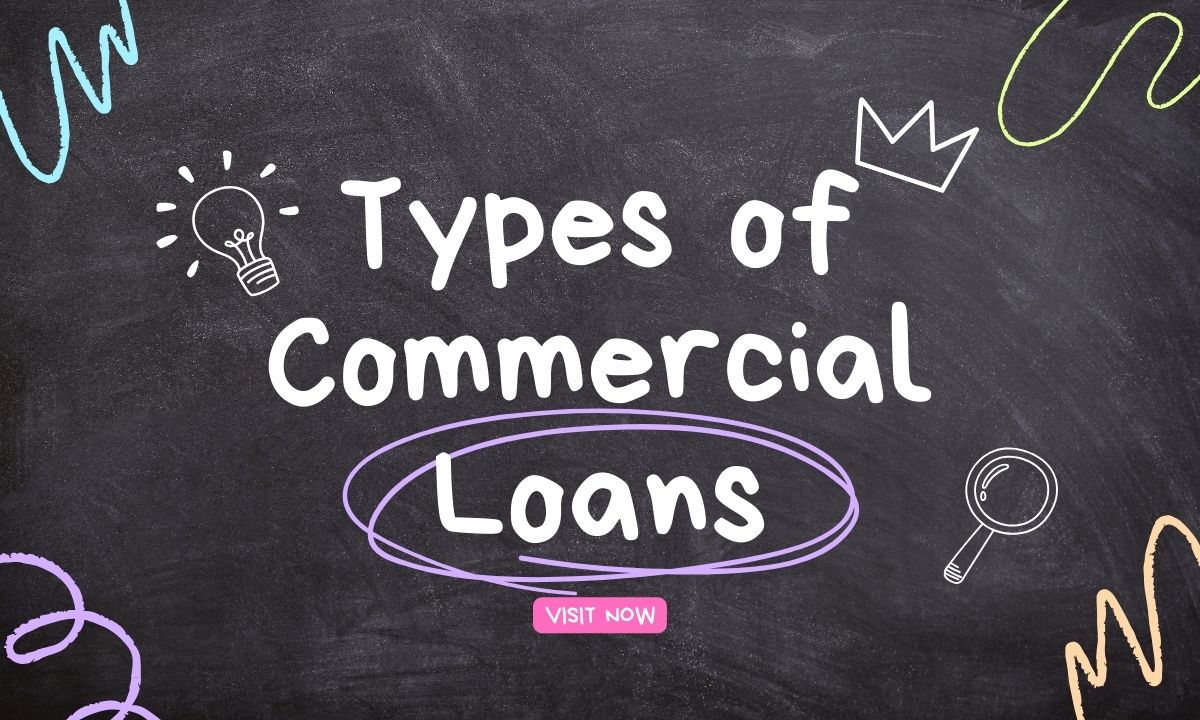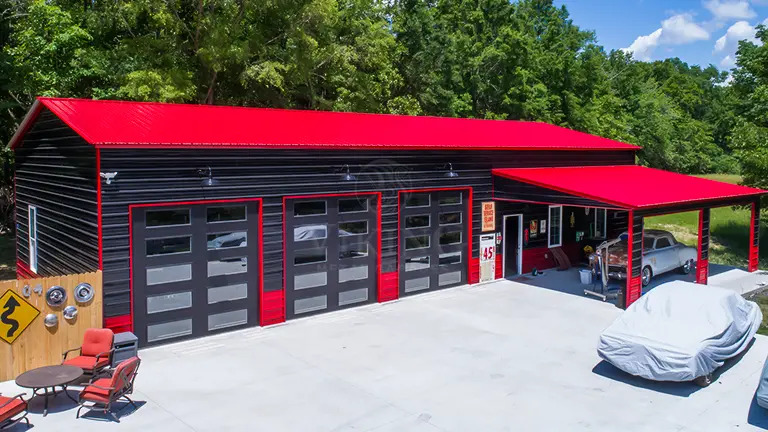Types of Commercial Loans: As they say, sometimes investing money is necessary to generate revenue. However, not everybody has the money to grow their company to new heights!
There are a number of special commercial loans available to entrepreneurs. These are your primary options if you’re looking to buy office space or need money for the next stage of your business plan.
1. Loan for Commercial Real Estate
Buying commercial property is the purpose of a commercial real estate loan, as the name suggests. These loans for commercial mortgages can be used to purchase properties as investments or as business space.
Even more subtypes of loans fall within the general category of commercial real estate loans, such as permanent loans, which serve as a first mortgage loan on a business building. Some, such as blanket loans, are intended to finance the acquisition of several properties. Local commercial lenders are able to collaborate with you to design a loan that meets the specific requirements of your company.
2. Line of Credit for Business
One kind of commercial loan that resembles a credit card in many ways is a business line of credit. Rather than receiving your entire amount at once, you will be eligible for a maximum amount. After that, you can take money from your credit line as needed. The nicest thing about this is that you only pay interest on the amount you actually use, not the entire amount.
Because of this, a line of credit is ideal for companies that might periodically require money to pay for running costs or to make ad hoc equipment purchases.
3. Financing for Equipment
Large pieces of equipment may be necessary for your field of work in order to create your goods or provide your services. The cost of equipment can be high—more than you can afford without cash on hand.
Rather than purchasing your equipment entirely, you have the option to finance it with a loan. This implies that you can pay for it gradually—of course with interest charges involved. Since the equipment itself will frequently be used as collateral, qualifying for this kind of loan is simpler than for others. But the bank has the right to take your equipment if you don’t pay.
4. Loan Term
A flexible loan with a set payback plan is a business-term loan. Generally speaking, this kind of loan has the following features:
- a predetermined loan period, often lasting one to five years but potentially longer or shorter, during which you must repay the money you borrowed.
- a variable or fixed interest rate
- There are not many limitations on the use of the funds.
A term loan is an excellent option if you need to pay various business expenses because you can use the funds however you see fit.
5. Loans for Commercial Construction
A mortgage for real estate is comparable to a loan for a commercial building. The distinction is that a construction loan is intended to pay for the planning and construction of an as-yet-unbuilt facility. A commercial construction loan would be the tool to help you realize your dreams of a brand-new owner-occupied office space, a business center, or a tall multi-family real estate investment from the ground up.
6. Business Auto Loan
For operations linked to their business, certain companies require automobiles. Similar to a consumer vehicle loan, a commercial auto loan can be used to buy these. When developing your fleet, keep in mind that many financial institutions will only offer financing on modern vehicles due to the rapid depreciation of automobiles.
Additionally, bear in mind that normal cars, vans, and pickup trucks are the ideal candidates for this kind of loan. Equipment financing might be a better choice if you need financing for a larger car, like a semi-truck.
7. SBA Credit
Small business entrepreneurs can qualify for a number of loan programs offered by the U.S. Small Business Administration (SBA). There are specific qualifying conditions and intended uses associated with each SBA program.
Loans under SBA 7(a): The most popular lending program offered by the SBA, 7(a) loans can be used for a variety of purposes, including supplies, real estate, short- and long-term working capital, and business debt refinancing.
SBA 504 loans: 504 loans are intended for companies that are investing in significant fixed assets, like office buildings, in order to expand.
Microloans: Designed to assist small enterprises in starting off and growing, these loans are smaller, with a maximum amount of $50,000.
The SBA does not actually provide funding for SBA loans. The money comes from other sources, but they guarantee the loan. For instance, if your neighborhood lender participates in the program, you may apply for a 7(a) loan, and the SBA would back the loan. While intermediate lenders who work with the SBA finance SBA microloans, a certified development firm would provide a 504 loan that the SBA would guarantee.
8. Bridge Credit
Bridge loans are intended to bridge the gap between an organization’s current needs and a longer-term funding option. Although the interest rates on these shorter-term loans are higher than those on permanent loans, they give firms a short-term cash flow to satisfy their obligations.
Typically, this kind of loan is utilized in the commercial real estate sector.
9. Finance for Inventory
Businesses occasionally need to make upfront purchases of goods that won’t be sold right away. If you own a clothing line, for instance, you might buy materials in advance in large quantities, even if your designs won’t be available right now. Inventory finance is intended to assist in defraying these expenses. The inventory serves as security for the loan.
Financial institutions typically accept invoice financing on a case-by-case basis because it can be a risky enterprise.
Locate the best commercial loans for your needs.
This is but a sampling of the financing alternatives accessible to small enterprises. Be sure you have done your homework on a loan type’s details before deciding on one. You can obtain the money you need to keep your organization thriving by being well-informed about what it wants and collaborating with a trustworthy, neighborhood-focused lender.





